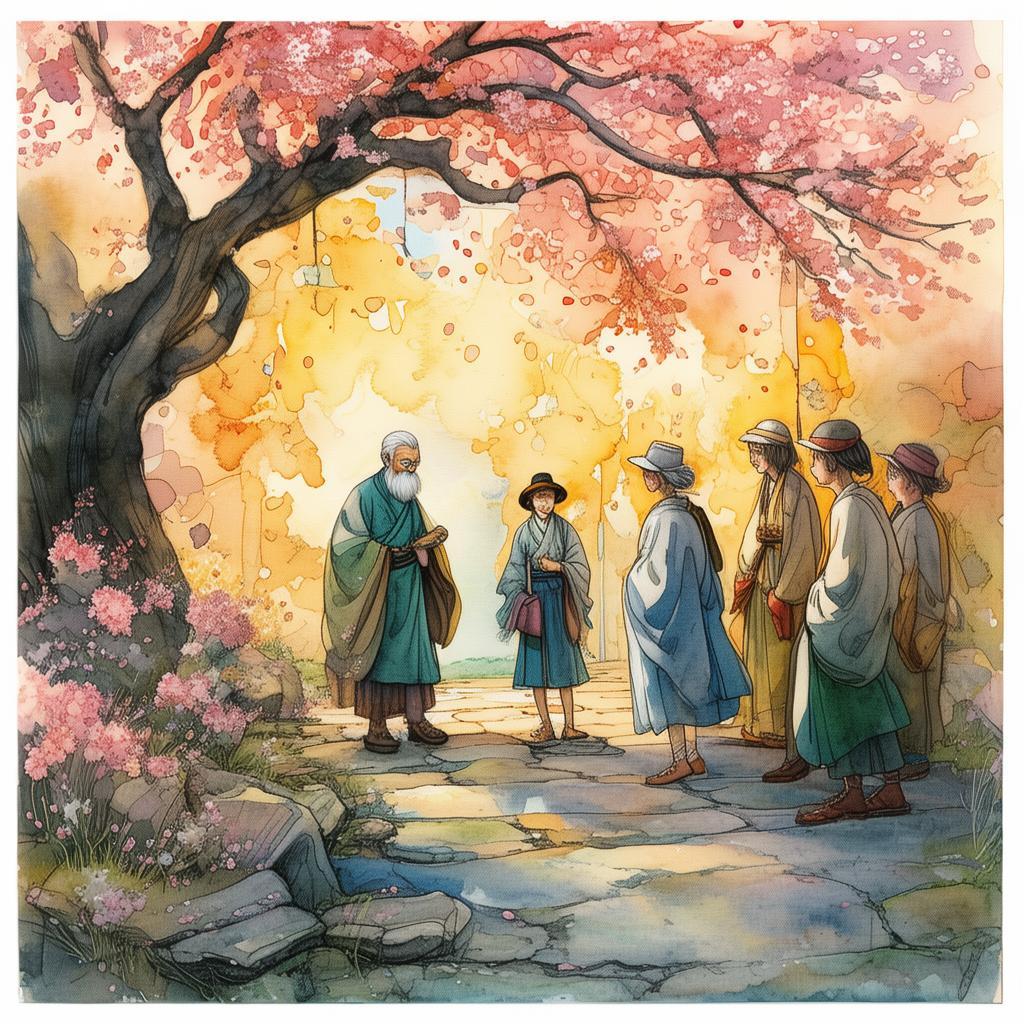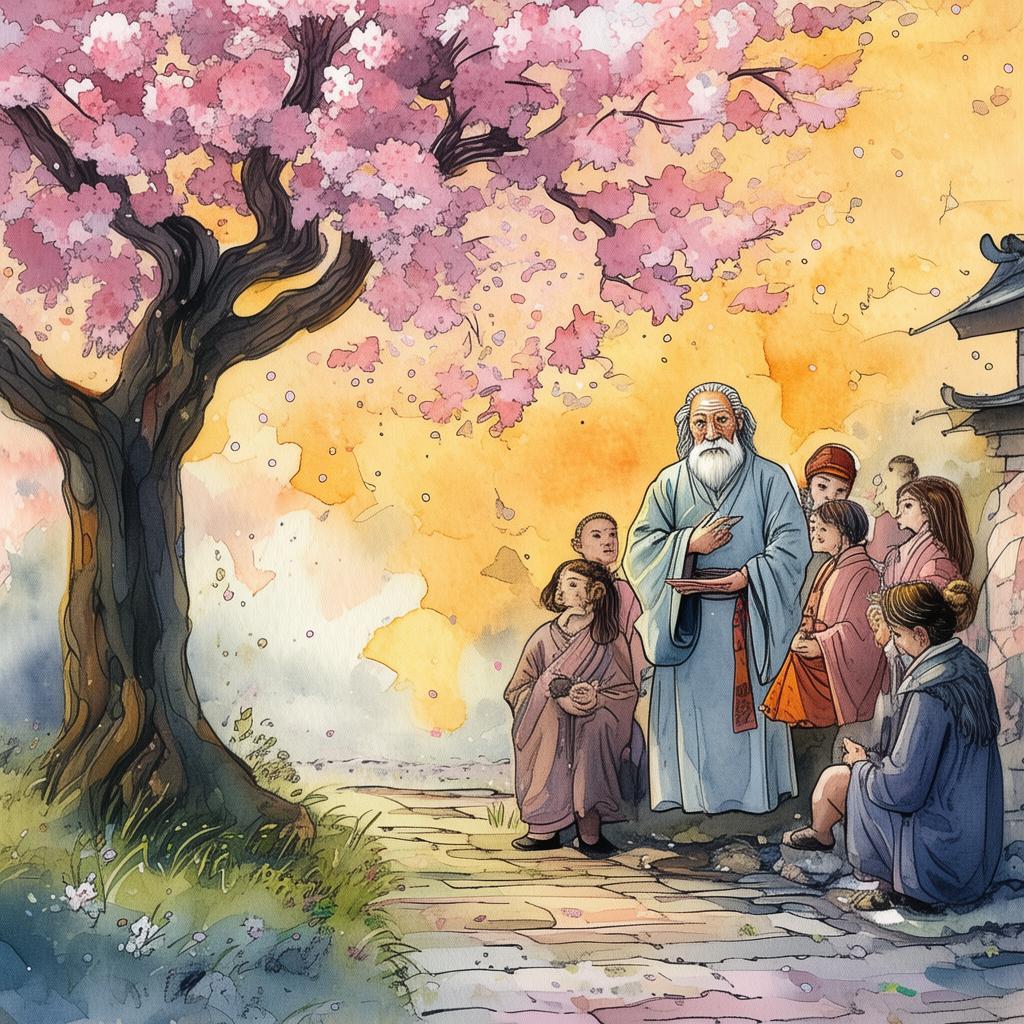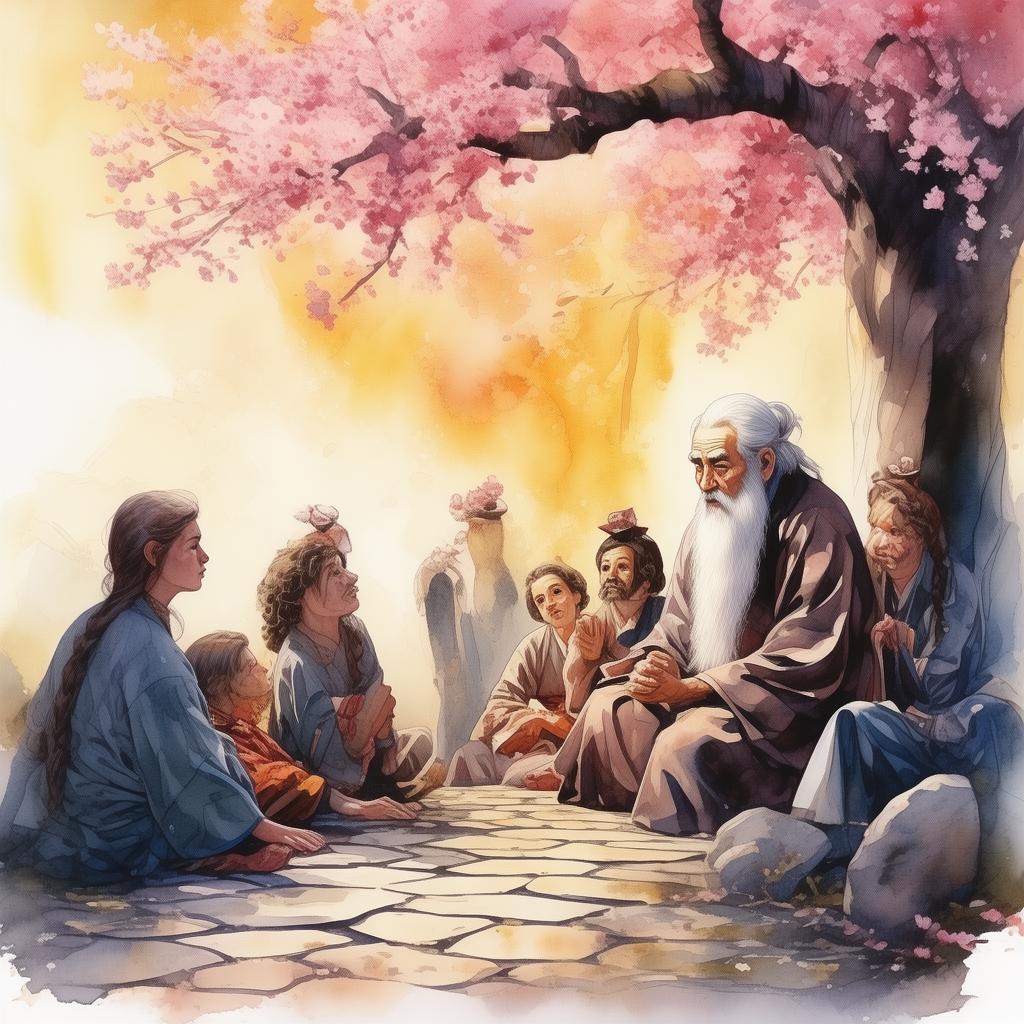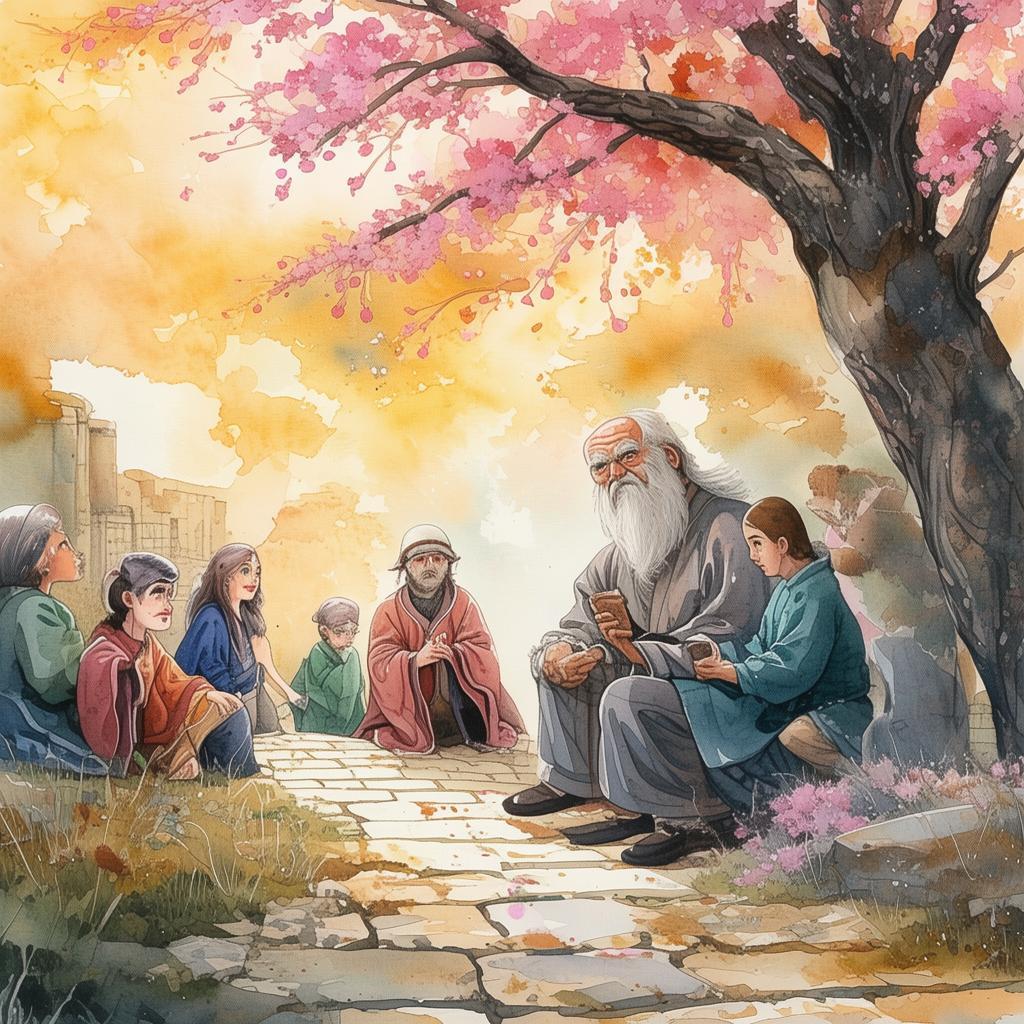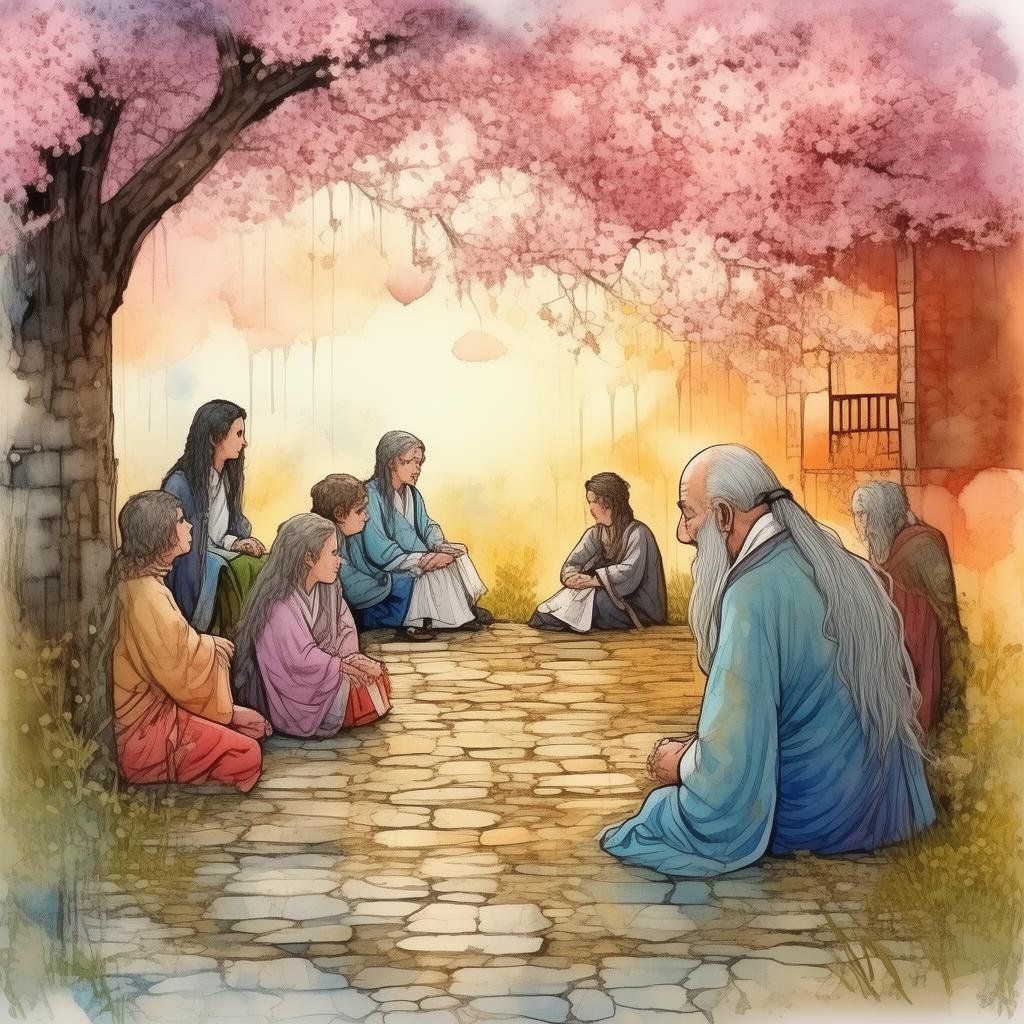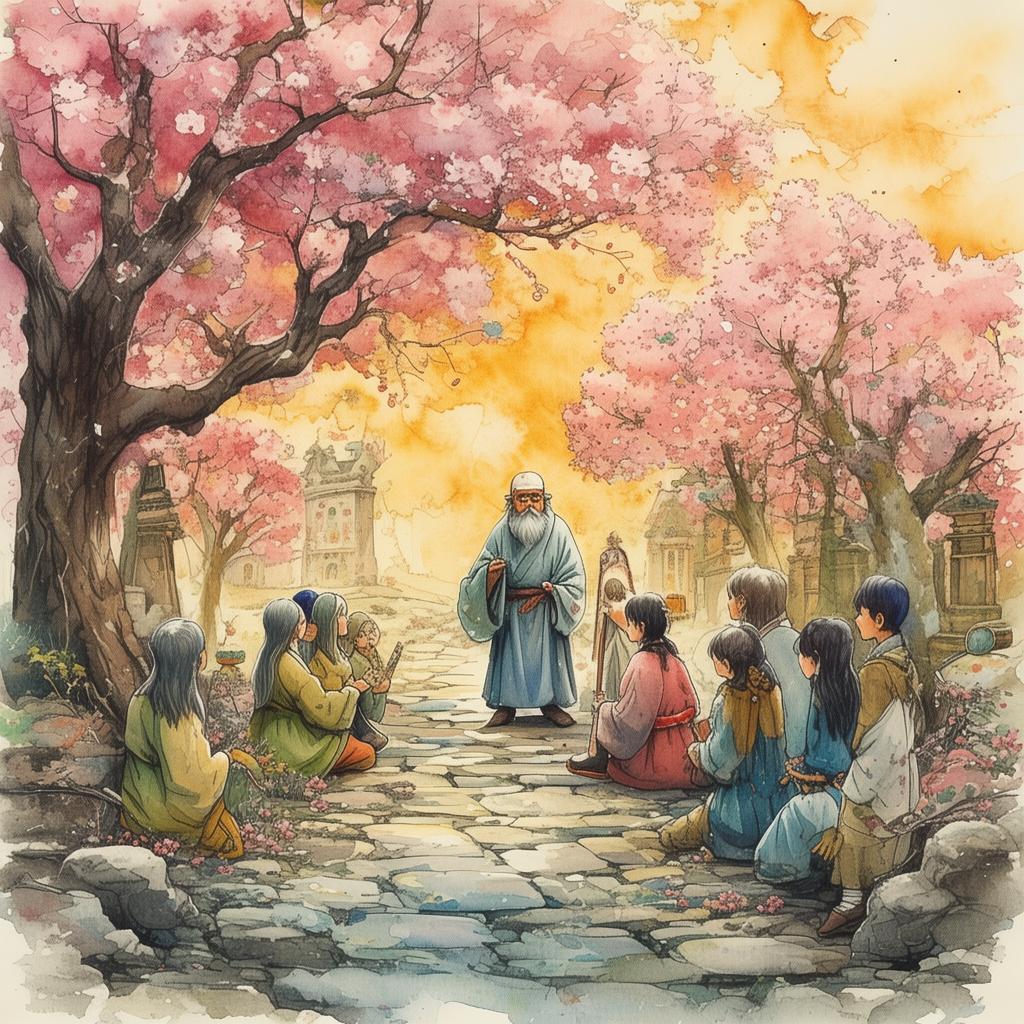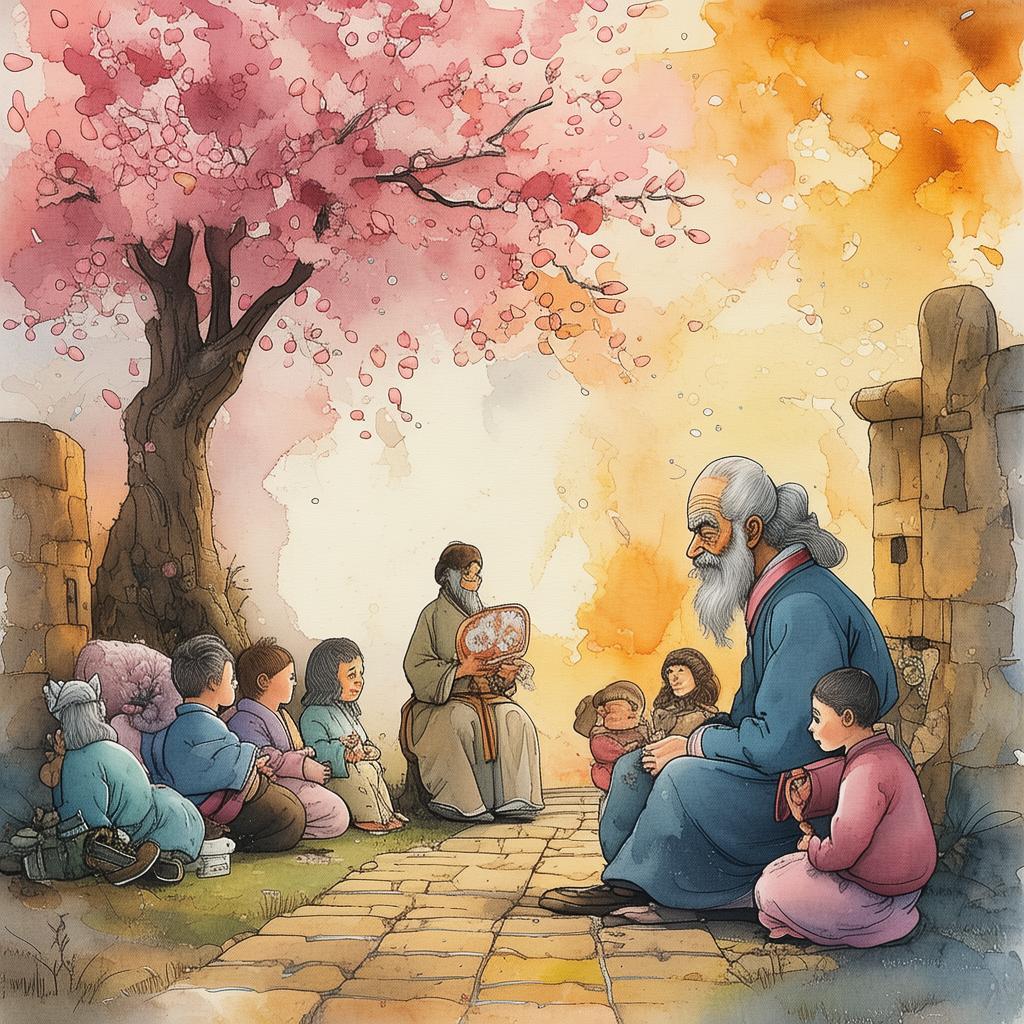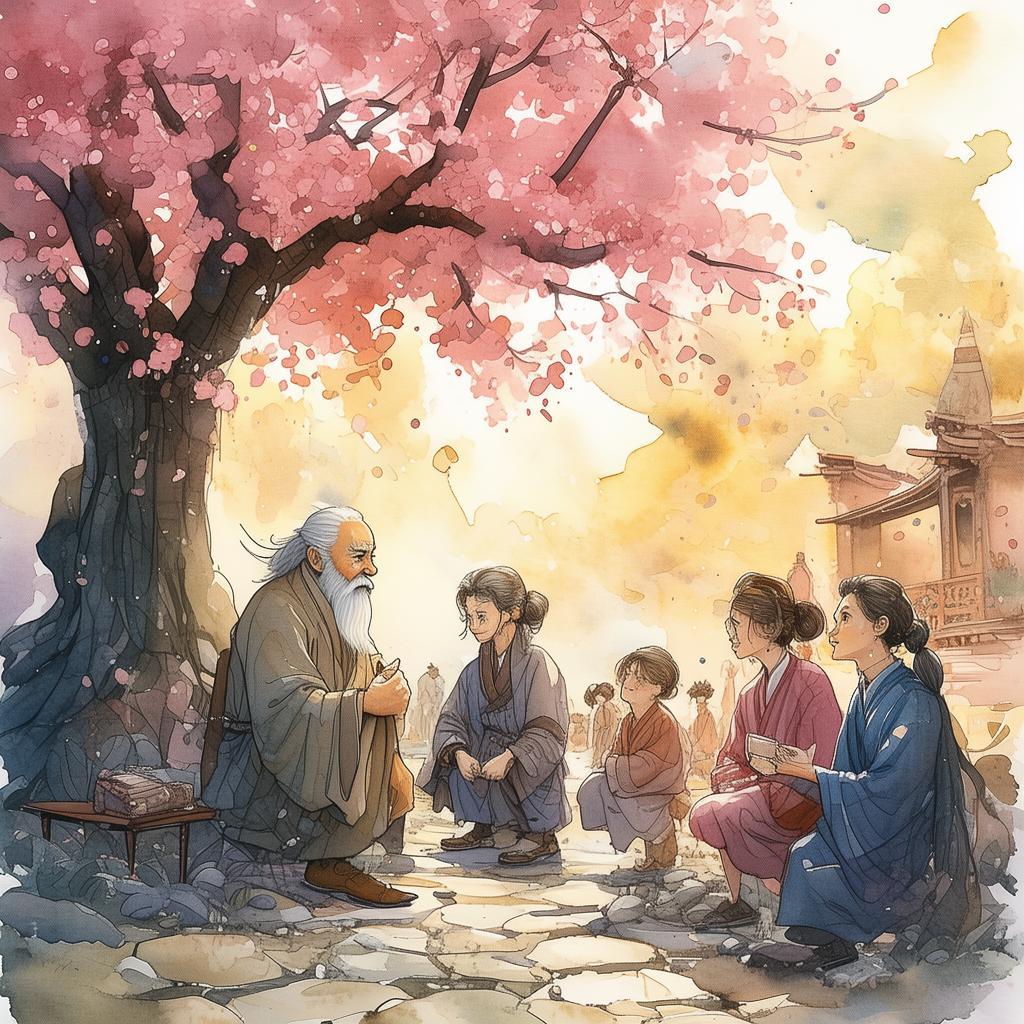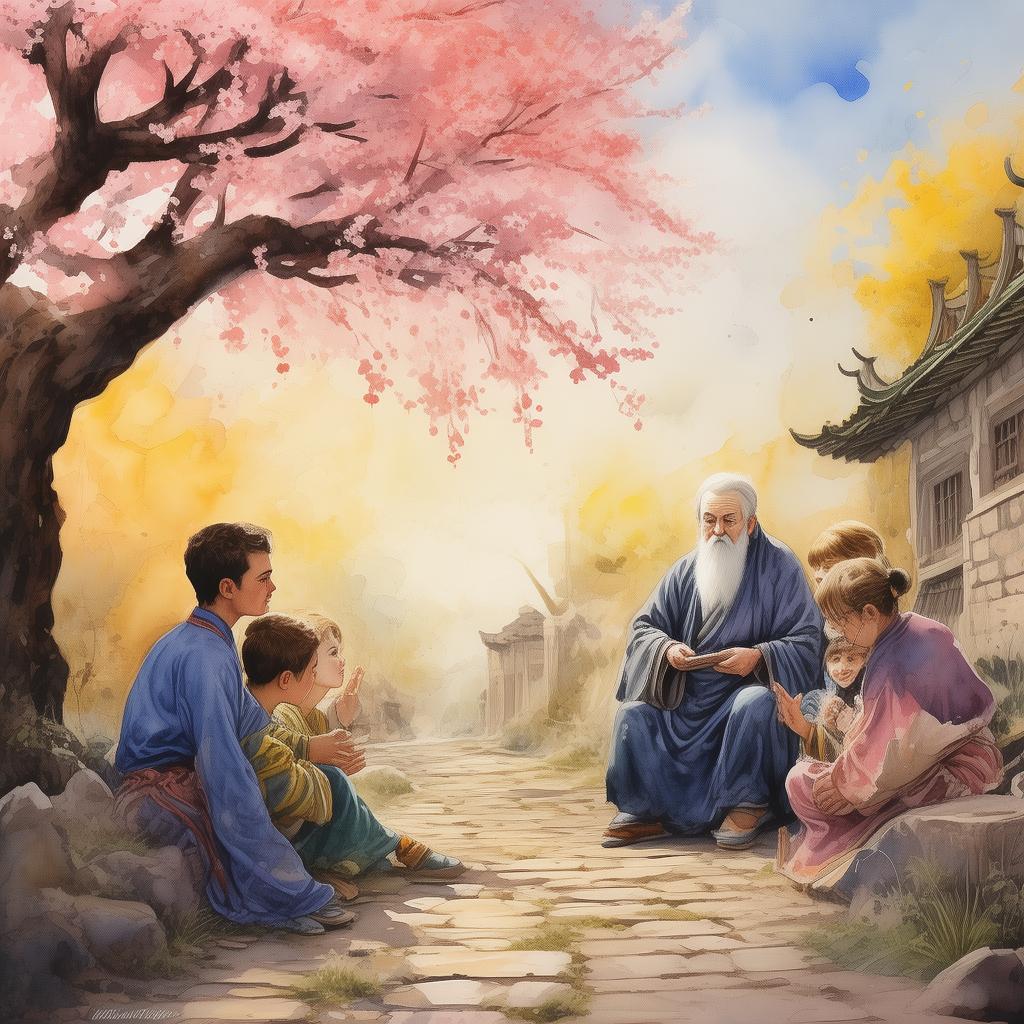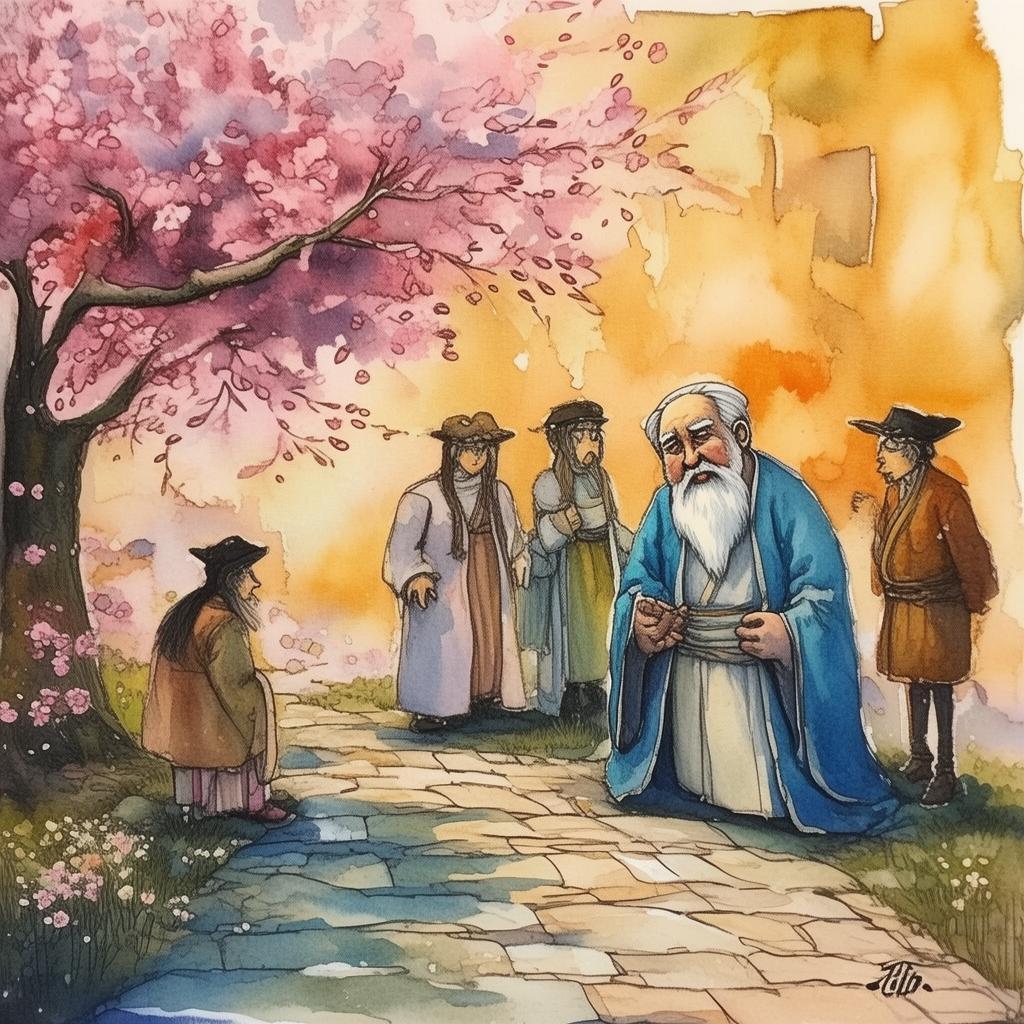The Dragon's Echo: The Hero's Falsehood
Once upon a time in the mystical land of Chang'an, there was a hero named Ming, whose name was whispered in hushed tones throughout the realm. Ming was said to be the bravest warrior in all the land, with a heart as pure as the crystal-clear waters of the Yellow River. His reputation preceded him, and many sought his counsel and protection.
Ming's most famous exploit was his victory over the ferocious Dragon of the East, a creature that had been terrorizing the people of the region for years. The hero had journeyed far and wide, seeking the legendary weapon that would defeat the beast, and upon his return, he was greeted as a savior.
However, behind the cheers and adulation was a truth that only Ming himself knew. The weapon he had used was not his own; it was a family heirloom that had been passed down through generations of his lineage. Ming had taken it without permission, feeling that his people needed a hero, and he had been too afraid to reveal the truth for fear of losing his standing.
The people of Chang'an never suspected the truth, and Ming basked in his glory, believing that his actions were justified. But as time went on, he grew tired of the endless praise and the expectation that he be a hero at all times. He longed for a normal life, one free of the weight of expectations.
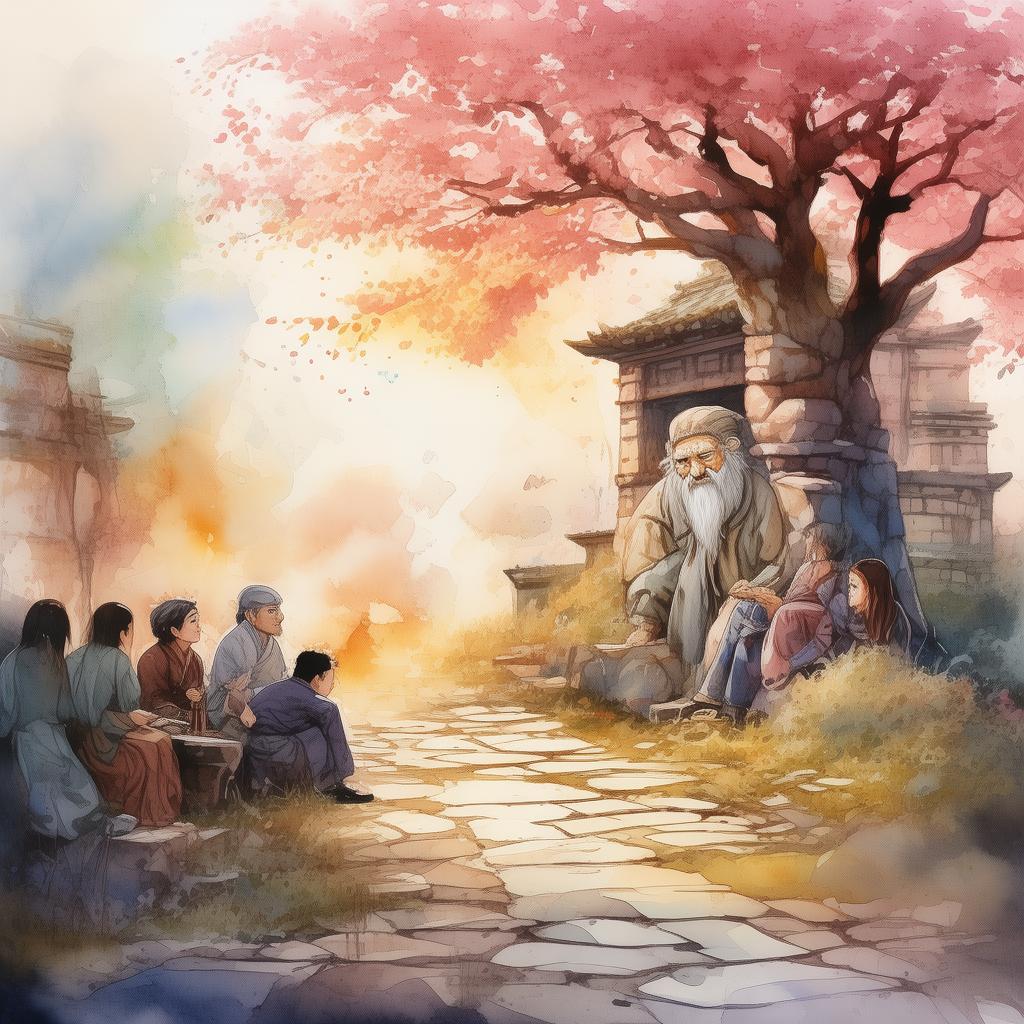
One day, Ming received a letter from an old mentor, a wise sage named Zhen. The letter spoke of a prophecy that Ming had been chosen for a greater purpose, a purpose that went beyond the protection of his people. Zhen's words struck a chord within Ming, and he decided to seek out the sage to learn more.
Upon reaching Zhen's humble abode, Ming was greeted with a knowing smile. Zhen revealed that the prophecy spoke of a time when the land would face a greater danger than the Dragon of the East—a time when the very fabric of reality itself was at risk. Ming was to be the one to avert this peril, but he needed to understand the true nature of heroism.
Zhen began to tell Ming stories of the past, of heroes who had been tested by their own consciences and had faced the consequences of their actions. Ming realized that the true hero was not the one who sought glory, but the one who sought the greater good, even if it meant sacrificing his own desires.
As the days passed, Ming grew to admire Zhen's wisdom and compassion. He came to understand that his past actions, though well-intentioned, had been selfish. He had sought glory for himself, not for the greater good of his people.
One night, as Ming lay in his bed, a voice echoed through the room. "You are the Dragon's Echo, Ming," it said. "Your actions resonate far and wide, and your truth will be revealed to all." Ming knew that the voice was the sage's, and he understood that it was time to face the consequences of his actions.
The next morning, Ming stood before the people of Chang'an and confessed his truth. He admitted that the weapon he had used against the Dragon of the East was not his own, and that he had taken it without permission. The crowd was initially in an uproar, but as Ming spoke, they began to understand the depth of his remorse.
Ming then shared Zhen's teachings with the people, emphasizing the importance of honesty, compassion, and selflessness. He asked for forgiveness, and the people of Chang'an, though hurt, forgave him. Ming realized that true heroism was not about power or glory, but about the strength to face one's faults and the courage to seek redemption.
Ming spent the following years traveling the land, teaching people the ways of the sage and helping them to overcome their own challenges. He became a beacon of hope, and his story was passed down through generations, serving as a reminder of the true meaning of heroism.
And so, the tale of Ming and the Dragon's Echo became a legend, a story of how one man's courage to face his falsehood led to his redemption and the betterment of his people. For in the end, it was not the heroism of arms or of power that saved the day, but the heroism of the heart, the willingness to change and to do what was right, even when it was difficult.
In this tale of Ming and the Dragon's Echo, we see that the true hero is not the one who seeks glory, but the one who seeks the greater good and the courage to do what is right, even when it means facing the consequences of one's actions.
✨ Original Statement ✨
All articles published on this website (including but not limited to text, images, videos, and other content) are original or authorized for reposting and are protected by relevant laws. Without the explicit written permission of this website, no individual or organization may copy, modify, repost, or use the content for commercial purposes.
If you need to quote or cooperate, please contact this site for authorization. We reserve the right to pursue legal responsibility for any unauthorized use.
Hereby declared.
